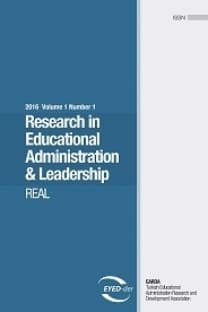The Viability of Comparative Research Concept as a Paradigm for Decolonising Educational Leadership Theory and Practice
The Viability of Comparative Research Concept as a Paradigm for Decolonising Educational Leadership Theory and Practice
___
- Allen, C. (2006). Narrative research. Nurse Researcher, 13(3), 4-6.
- Andreotti, V., Ahenakew, C. & Cooper, G. (2011) Epistemological pluralism: Ethical and pedagogical challenges in higher education. AlterNative: An International Journal of Indigenous Scholarship 7(1), 40–50.
- Begley, P. (2000) Cultural isomorphs of educational administration: reflections on Western-centric approaches to values and leadership. Asia Pacific Journal of Education, 20(2), 23-33.
- Bhaskar, R. (1989). Reclaiming reality. London: Verso.
- Yayın Aralığı: Yılda 4 Sayı
- Yayıncı: Dokuz Eylül Üniversitesi
Representations of School Leadership and Management in Africa: A Postcolonial Reading
Rethinking Education Leadership through Self-Reflection: Examining the TURNS Model
Colleen LOOMİS, Abdeljalil AKKARİ
Theorising Context in Educational Leadership from a Relational Critical Realist Perspective
Decolonising Education Leadership Knowledge and Practice: What direction for Sub-Saharan Africa?
